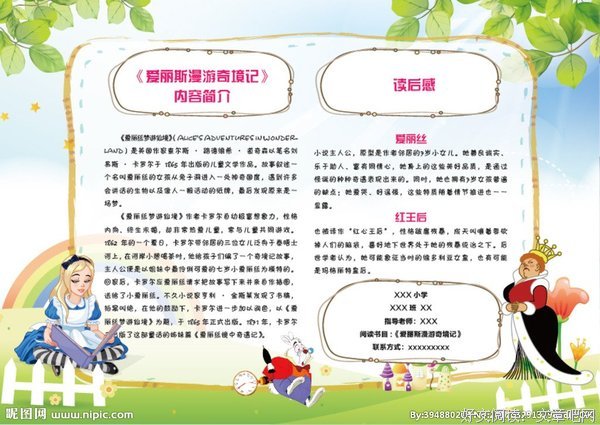
《Economics in One Lesson》是一本由Henry Hazlitt著作,Three Rivers Press出版的Paperback图书,本书定价:USD 14.99,页数:218,特精心从网络上整理的一些读者的读后感,希望对大家能有帮助。
《Economics in One Lesson》精选点评:
●有些观点不甚同意。议论文小示例(然而插入语太多,句子结构好碎……
●这本书用 "字字玑珠" 来形容完全不过分. 我觉得我是 libertarian...
●经济学和物理学数学终归不一样,它还是一门人造科学,与政治的对抗博弈体现了一个经济学家的真素养。
●All in one word. Scarce, or Scarcity is the fundamental of Economics. Threat the economical activities as a complex and interrelationship activities. good reading for beginner to acquire a film grasp of economics.
●每个情况都能和中国对上号啊
●Excellent. Hazlitt blows my mind with his deep understanding of economics. Though not trained an economist, Hazlitt really did understand economics=)
●内容比较好理解,都是一章一个专题,比较好读
●Hazlitt很诚恳,时时不忘提醒自己和读者:this is an introduction book for general economics. 很多我们(中国人)司空见惯的政府对经济操控的事实和做法仔细分析看来都是short sighted fallacies.
●Why didn't I read it several years ago? Why did I have to be that stupid back then?
●大师才有的深入浅出,会再读。
《Economics in One Lesson》读后感(一):纠正人们认识误区的一本好书
这是一本主张自由经济的书籍。面向的读者是非专业人士。作者用简单明了的语言描述了一部分人(可能是很大一部分人)对经济学中的一些错误认识。
主要的批判方法是:人们只看到了某种行为造成的结果,而没有看到它背后发生的事情,或者没有看到哪些原本可能发生却没有发生的事情。
《Economics in One Lesson》读后感(二):经典读物
全书用五分钟即可读完。
中心思想只有一句话:
Economic planning should take into account the effects of economic policies on all groups, not just some groups, and what those effects will be in the long run, not just the short run.
《Economics in One Lesson》读后感(三):非常inspiring的段落
a. ...but no one will ever properly understand any of these specialized fields unless he has first of all acquired a firm grasp of basic economic principles and the complex interrelationship of all economic factors and forces. When he has done this by his reading in general economics, he call be trusted to find the right books in his special field of interest.
奥派确实inspiring. 对于我这种对经济学没啥概念,认为计划经济可以理解,高税收带来高福利,社会保障render people dignity,保护性关税mixed with 沙文主义,水果贱卖伤害果农所以政府要掌控价格杠杆,技术革新增加失业率——的小白来说,economics in one lesson is essential.
To dissect your common sense, to point out the granted fallacy, and things used to be familiar to your remain no longer the same.
. Government's main economic function is to encourage and preserve a free market. When Alexander the Great visited the philosopher Diogenes and asked whether he could do anything for him, Diogenes is said to have replied: ' yes, stand a little less between me and the sun.' It is what every citizen is entitled to ask of his government.
'stand a little less between me and the sun', alas, 犬儒何其壮哉。
《Economics in One Lesson》读后感(四):“一课”经济学
关于《一课经济学》,国内中信译本的顶端是这么写的:“如果你只想看一本经济学的书,那应该就是这一本”,随书封首封底附赠诸如哈耶克等人的众多溢美之词。但是如果你真想从这本书里有什么收获的话,大约是要失望的。
作者说是“一课经济学”,的确是非常精到的描述。如果你指望一本书读到经济的各个方面,看看简介和目录吧,“公共建设工程、税收、政府信贷、就业与失业、关税、最低工资、进出口、价格体系、房租管制、工会、最低工资、利润、储蓄、通货膨胀等”方方面面谈的相当不少;但是某种程度上说,这样的一课更像是学期大课的“前言”。实际上作者所做的一切,就是从“The art of economics consists in looking not merely at the immediate but at the longer effects of any act or policy; it consists in tracing the consequences of that policy not merely for one group but for all groups”这一句话出发,用最简单的话语“辟谣”。与其说这本作者一生中知名度最高的的小册子是为了给大众上一课基础的经济学,不如说是从群众基础上挖凯恩斯主义的墙角。辟各种非新自由主义经济学的谣,革凯恩斯主义的命。
虽然说是要考虑各方面的影响,但是这种忽视一切政治、人文、历史影响分析经济的方法对不对,这还真不好说。Coase近期在《哈佛商业周刊》的一个小短篇里说“ It is suicidal for the field to slide into a hard science of choice, ignoring the influences of society, history, culture, and politics on the working of the economy.”诚然,单纯按照书中的论述,政府哪怕是对市场经济进行一点儿干预都该剁手(更不用说有XX特色的市场经济乃至计划经济),但是哪怕带路党也不能否认,如果说挂着马克思经济学仰头的国家这个世界上还有一两个的话,敢说自己实践完全自由经济的国家,一个也没有。即使是对哈耶克推崇备至的撒切尔夫人,也从来不曾考虑把政府的手从英国这个老牌资本主义国家的经济体系里彻底挪开过。
耐着性子看了个双语对照的txt版本,认不认同且不好说,但从写作风格来说,老先生这种絮絮叨叨宛如我党高级干部开会只讲三点的论述风格,实在难称典范。起码作为一个“20世纪最重要的经济专栏作家”,无论是写专栏还是大忽悠,只怕都要被狼叫兽之流甩上几条街。
《Economics in One Lesson》读后感(五):This is the most important part shocked me.
‘ Suppose we divide the community arbitrarily into four main groups of producers, A, B, C and D, who get the money-income benefit of the inflation in that order. Then when money incomes of group A have already increased 30 per cent, the prices of the things they purchase have not yet increased at all. By the time money incomes of group B have increased 20 per cent, prices have still increased an average of only 10 per cent. When money incomes of group C have increased only 10 per cent, however, prices have already gone up 15 per cent. And when money incomes of group D have not yet increased at all, the average prices they have to pay for the things they buy have gone up 20 per cent. In other words, the gains of the first groups of producers to benefit by higher prices or wages from the inflation are necessarily at the expense of the losses suffered (as consumers) by the last groups of producers that are able to raise their prices or wages.
It may be that, if the inflation is brought to a halt after a few years, the final result will be, say, an average increase of 25 per cent in money incomes, and an average increase in prices of an equal amount, both of which are fairly distributed among all groups. But this will not cancel out the gains and losses of the transition period. Group D, for example, even though its own incomes and prices have at last advanced 25 per cent, will be able to buy only as much goods and services as before the inflation started. It will never compensate for its losses during the period when its income and prices had not risen at all, though it had to pay 30 per cent more for the goods and services it bought from the other producing groups in the community, A, B and C.’
last,
To see the problem as a whole, and not in fragments: that is the goal of economic science.